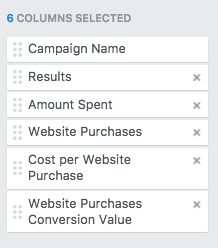 I’ll admit it: you can’t touch or hold the product I’m selling. You’ll never be able to package it, ship it, weigh it, or put it on your coffee table. I’m not selling a thing; I’m selling a service. It’s hard to sell a service, yet millions and millions of websites are doing just that. When you’re just beginning to market your business, the question of what to put on your website is a lot more difficult to answer if you can’t include photos of our products on the list.
I’ll admit it: you can’t touch or hold the product I’m selling. You’ll never be able to package it, ship it, weigh it, or put it on your coffee table. I’m not selling a thing; I’m selling a service. It’s hard to sell a service, yet millions and millions of websites are doing just that. When you’re just beginning to market your business, the question of what to put on your website is a lot more difficult to answer if you can’t include photos of our products on the list.
So what’s an intangible-business provider to do?
The answer depends on what kind of service you provide and, more importantly, what your service means to the people who hire you to do it. Beyond your business card and a description of what it is you can do for them, you need to show them the effect your work will have on their lives. Thankfully, the web is a great place to do that.
Brains
If you’re selling your brains, that means you are offering your clients and customers the value of what’s in your head. The brains-salespeople are selling advice and counsel. Examples of brains-salespeople are:
- Business & non-profit management consultants
- Tutors and educational coaches
- Marketing and advertising strategists
- Recruiters and headhunters
- Writers, proofreaders, and social media strategists
- Therapists and medical/dental professionals
Sure, you may generate a product in that you deliver documents, reports, health advice and sometimes even human beings (in the case of the recruiters and some of the medical professionals), but you don’t have a warehouse of these things. You’re selling expertise. You’re selling your mind and its vast stores of knowledge.
How You Sell It Online: Evocative Photos & Well-Written Topical Content
First, you need to invest in some great, GREAT photography. Intangible things like ideas require your potential customers to use their imaginations far too much. They need to associate your work with emotions, so think about how working with you will make them feel. Will your work make their lives calmer? More exciting? Less complicated? More organized? Choose images to use on your site that evoke those emotions. They can be images of you and your staff or of people your clients could imagine as themselves, but images of people are important here.
Secondly, you need to be marketing your expertise and not your business. That means you need to include writing and other content on your site that showcases what you know. Blogs are a great way to do that, but don’t discount well-produced video or slide decks. Share just enough of your knowledge that these prospective clients are impressed, but not so much that you educate them out of needing you at all.
Brawn
 Brawn-salespeople are selling their muscle. If you’re selling your brawn, this doesn’t mean that you’re not in possession of some great brains and imagination — you have to have both to run your business, of course! — but just that your business is focused on using your body. Brawn-salespeople can be:
Brawn-salespeople are selling their muscle. If you’re selling your brawn, this doesn’t mean that you’re not in possession of some great brains and imagination — you have to have both to run your business, of course! — but just that your business is focused on using your body. Brawn-salespeople can be:
- Movers
- Handypeople and house painters
- Landscapers
- Dog walkers
- Massage therapists
Your product is delivered with the use of your physical self, and that can make it a little more straightforward for you to sell. Prove that you have the strength and stamina for the job — plus, of course, the talent and experience to do it right — and you’re most of the way there.
How You Sell It Online: Personal Photos and Verifiable Testimonials
This is your physical presence you’re selling. Whether you need to look like you can haul boxes, wrangle five leashes, or give a deeply relaxing massage, it’s likely that your prospective clients will want to have a sense of your appearance. If they’ll be hiring you to touch them, their pets, or their prized possessions, that moment of realization at your first meeting — “oh yes, that’s the person whose picture I saw” — inspires instant trust. Take a photo of you either doing what you’ll be doing for your clients or, if that’s not possible, in the kind of clothing you’d wear for the job.
The testimonials you share turn your abilities — however specialized — into expertise in the eyes of your clients. While of course not everyone can paint a room without leaving a drip on the floor or safely move all the belongings for a family of four across the state, more than in other professional service industries, your clients might think they could. The testimonials you share from real customers — ideally with a photo of the work you did for them — will go a long way to establishing your credibility. Take the time to get feedback from your existing clients and share it on your site.
Imagination
 If you’re selling your imagination, you have a both a tricky and really fun job to do. On the one hand, it’s hard to quantify imagination in any way — how do you prove it? How does your client know if you’ll imagine his project the right way? On the other hand, your web site, more than that of any other service provider, is a showcase for your creativity. It’s very aesthetic is a display of your imagination! Imagination-salespeople can be:
If you’re selling your imagination, you have a both a tricky and really fun job to do. On the one hand, it’s hard to quantify imagination in any way — how do you prove it? How does your client know if you’ll imagine his project the right way? On the other hand, your web site, more than that of any other service provider, is a showcase for your creativity. It’s very aesthetic is a display of your imagination! Imagination-salespeople can be:
- Designers (graphic OR interior OR fashion)
- Dancers, musicians, and other performing artists
- Public speakers
- Party and event planners
How You Sell It Online: An Out-of-This-World Portfolio
Whatever you have to do in order to get your creativity into a digital format, invest in it. Record high-quality sound files of your music or DJ experience; get well-edited video of your dance performances; have audio AND video clips of several public speaking events; make a beautiful, eye-catching slideshow of photos from the parties you’ve planned. Make your online portfolio visually stunning and easy to share via social media and email. Make it mobile friendly. Test it every which way you can. This is the main thing you’re selling — rock that portfolio!
Selling an intangible product is hard no matter what, but you have to do it well online if you want to succeed. How do your customers choose someone in your industry? What’s important to them? What are their fears about hiring someone like you, and how can you reassure them before they walk away? Your website offers you the chance to craft the message and the mood in which that message is delivered — so think about how best to use the medium, and plan carefully. If you do it right, the lack of a tangible product won’t make your customers feel like they got less value for their money — they’ll be excited to hire you again.
Business & Finance Articles on Business 2 Community(39)









